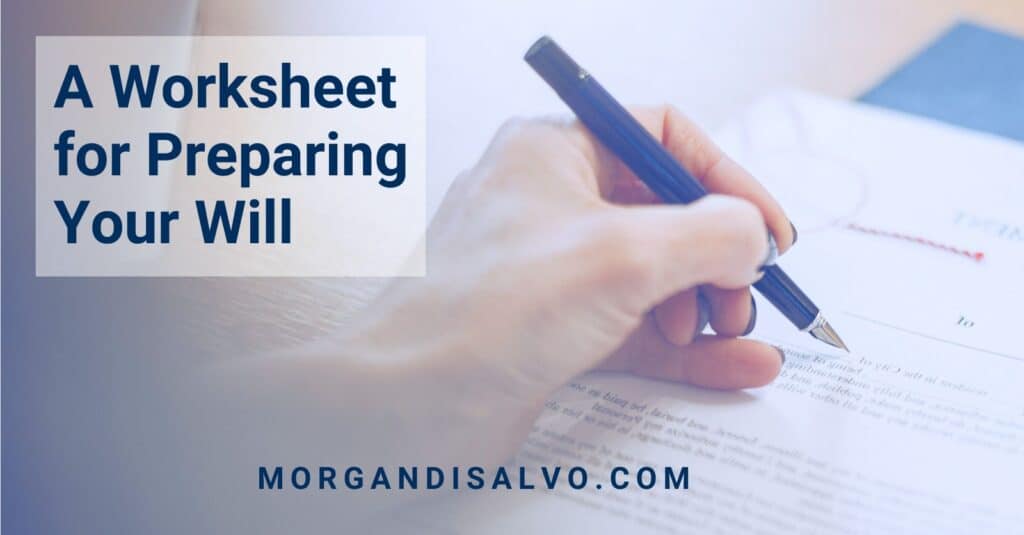If you’re just starting the estate planning process, this worksheet may be useful as you prepare to meet with an estate planning attorney.
Items to Bring with You to an Estate Planning Consultation
- Basic family information. Be prepared to share information about your family makeup, including marital status, traditional vs. nontraditional, blended family, and unique considerations (i.e., special needs beneficiaries or disabilities).
- Financial information. Your financial balance sheet includes your bank and investment account statements, real estate documents, insurance policies, and other assets that form your net worth. Some assets may need special attention, such as closely owned businesses, significant IRAs, or qualified plan accounts.
- Copies of any existing estate planning documents. If you have a previous Will or living Trust, bring those documents with you.
- Copies of other legal documents such as prenuptial agreements, divorce settlements, and business-related buy-sell agreements. These agreements will affect the complexity of your estate plan.
Considerations to Discuss at Your Estate Planning Consultation
The following questions will help you think through your overall estate planning goals and objectives. While this list of considerations isn’t exhaustive, it will help guide the conversation you’ll have with an estate planning attorney.
What I want to happen if I become incapacitated while I’m still living:
If you expect that you might become unable to manage your affairs at some point, there are estate planning options that can protect your interests while you’re still living.
What I want to happen when I eventually die:
Your intent on passing assets at death to loved ones, charitable organizations, or both is the key driver of your estate plan.
My concerns about taxes:
Concerns about wealth transfer taxes, such as estate, gift, generation skipping, and income taxes, warrant a discussion about liquidity issues and viable structuring options.
The people I want to serve in fiduciary roles for my estate:
These roles include Executor, Trustee (if considering Trusts), Guardian for minor children, attorney-in-fact under your Power of Attorney (for financial and property affairs), and health care agent under your Advance Directive for Health Care. You will want to name your initial selections and preferably at least two alternatives if your initial choices are unable or unwilling to serve.
Three Key Estate Planning Questions
A qualified estate planning attorney who understands Georgia estate, Will, and trust laws will know what questions to ask to help structure the best estate plan for your needs. However, the following three questions should always be asked:
-
-
- How should assets pass upon the first spouse’s death (for married couples)? This may also apply to non-married couples in a committed long-term relationship. There are additional issues to consider if you are married with a blended family or have no children.
- How should assets pass to children or other non-spouse beneficiaries, even if you are the first spouse to die?
- Should you use a Will or Revocable Living Trust with a pour-over Will as your primary estate planning document?
-
Beyond financial matters, your estate planning conversation should also include discussion of your final wishes for burial, how you want to be remembered, and the legacy you want to leave.
If you’re looking for an experienced estate planning attorney in the Atlanta area, Morgan & DiSalvo can help you explore your estate planning options, including Wills, Trusts, and special needs planning. To request further information or to schedule a meeting with us to review your current estate plan, please call (678) 720-0750 or email info@MorganDiSalvo.com.


